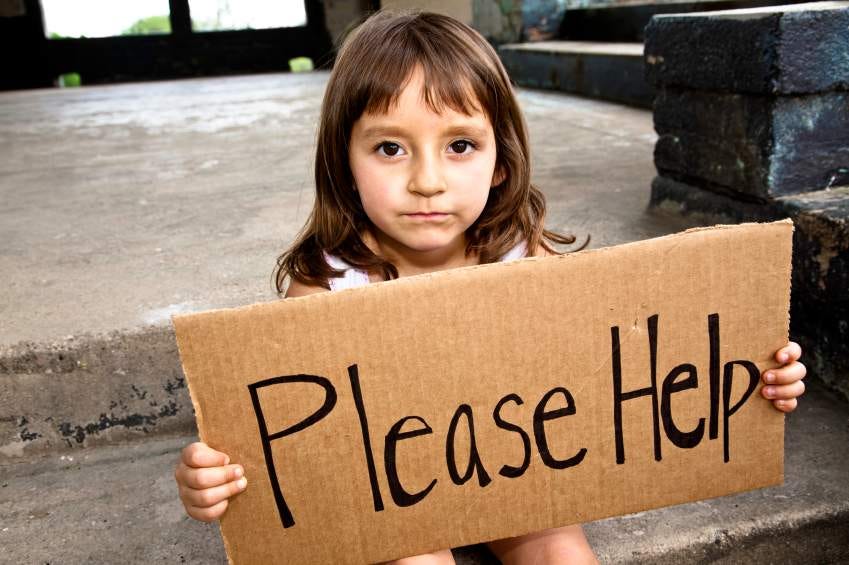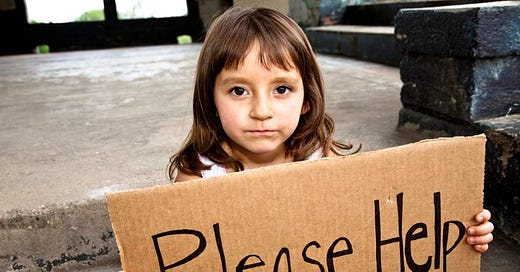Teach Girls, End World Poverty

The amount of suffering and death caused as a result of poverty is staggering. The poorest 46 percent of people in the world have a mere 1.2 per cent of the income. One-third of all human deaths are from poverty-related causes: 18 million annually, including 12 million children under the age of five.*
Numbers don't quite do this problem justice. Imagine that roughly every two minutes, a school bus full of children crashes, instantly killing every one of the children on board. Here's another way to think about that fact: roughly every three seconds, 1 child dies from poverty-related causes.
In the time that it took you to read that paragraph, 2 children died from poverty-related causes.
When I taught this issue to my philosophy students, most were simultaneously horrified and overwhelmed. Some were more apathetic, seeing the deaths as something that was someone else's problem. It's our problem and it is overwhelming.
It's overwhelming precisely because it's hard to know where to start. There are a host of issues ranging from geopolitics, cross-cultural evaluations, retributive justice, logistical concerns, and allocation concerns.
The fascinating thing about this is that it turns out that educating girls is the most effective entry point to this problem. Here's what one of the preeminent scholars and activists on world poverty has to say:
"There is now abundant evidence that birth rates tend to fall dramatically wherever poverty is alleviated and women gain better better economic opportunities, more control within their households, and better access to reproductive information and technologies."
As another case, Grameen Bank, a microcredit bank founded by Nobel Prize laureate Muhammad Yunus, focuses 2 of the 16 Decision its lendees subscribe to on females:
Decision 6: We shall plan to keep our families small. We shall minimize our expenditures. We shall look after our health.
Decision 11: We shall not take any dowry at our sons' weddings, neither shall we give any dowry at our daughters wedding. We shall keep our centre free from the curse of dowry. We shall not practice child marriage. While all the other principles help to preserve and increase the resources of its lendees, these two specifically promote equality, education, and upward mobility for girls. It's hard to see that you can make valuable contributions to your community and world when you view yourself as property to be exchanged or a vessel for babies.
While a lot of the attention on female empowerment in education and entrepreneurship focuses on other parts of the world, the effects are the same here in the United States, even among women who have it relatively well. For instance, the strong majority of my clients are women, and as their entrepreneurial and business capabilities increase, the lives of their families are transformed.
Sometimes this bears out in small ways, such as when I help them design their businesses so that they can spend time with their children and things will be okay. Other times, it's much larger - as they earn more, they can reallocate their business profits to their kids' education and well-being.
Regardless of the scale, I've noticed that my female clients' successes more quickly translate to the well-being of their families. Though the immediate social results may not be as dramatic as it is in some of the developing world, it seems that we should be placing a similar emphasis on the education and empowerment of girls and women at home as we do abroad.
I think the Dalai Lama is right in his proclamation at the Peace Summit that "the world will be saved by the Western Woman." My belief goes a bit further than that: the world will be saved by the Western Woman - and those that should be saved first are the non-Western girls.
If you'd like to learn more how you can help save the world by empowering girls, check out the Girl Effect. This post is a part of The Girl Effect Blogging Campaign - special thanks to Tara Sophia Mohr for asking me to be involved.
*Statistical information taken from Thomas Pogge's World Poverty and Human Rights. All royalties from the purchase of the his book go to Oxfam.




